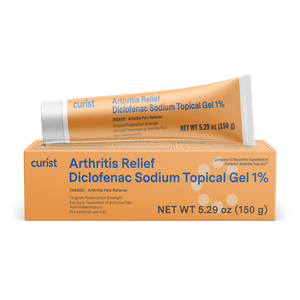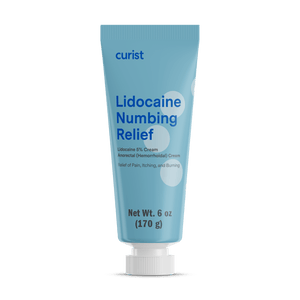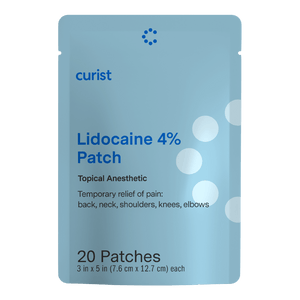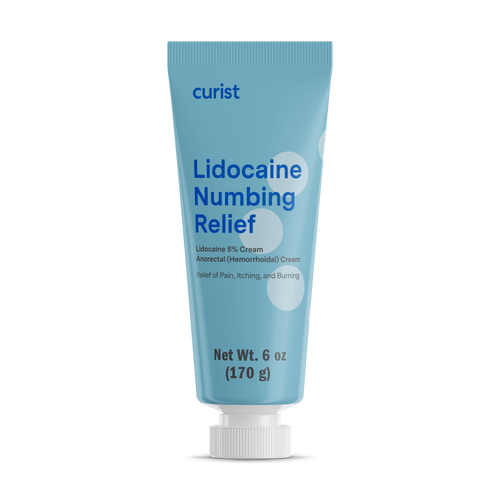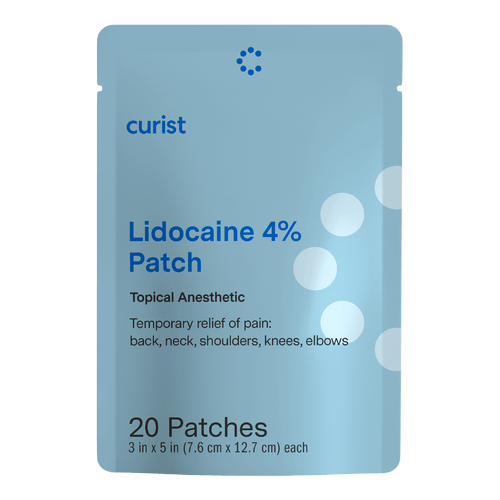Curist delivers FDA-approved medicines to your door at half the price of traditional brands. We hope everyone stays safe and healthy during this time.
Wondering which anti-inflammatory medication is best for you? Read on as we discuss the different types available and when you might select one over the others.
What are Anti-Inflammatory Medications?
Anti-inflammatory medications encompass a variety of different drug classes that reduce inflammation and swelling. Anti-inflammatory medications are commonly used to treat pain and prevent the progression of many inflammatory conditions, including arthritis.
What are the Best OTC Anti-Inflammatory Medications for Arthritis?
Per the American College of Rheumatology and Arthritis Foundation, non-steroidal anti-inflammatory drugs (NSAIDs) are the best over-the-counter medicines for arthritis pain management. NSAIDs work by inhibiting COX enzymes that lead to the production of prostaglandins and thromboxanes, which are important inflammatory mediators. Blocking this response ultimately results in reduced inflammation, pain, fever, and swelling.
Examples of over-the-counter (OTC) NSAIDs include:
- ibuprofen (brand Advil, brand Motrin)
- naproxen (brand Aleve, brand Naprosyn - prescription only)
- diclofenac gel (Curist Arthritis Relief, Voltaren)
What OTC Medicines are Not Good for Arthritis Pain?
There are a few OTC medications that are typically not recommended for arthritis pain. Aspirin is another type of NSAID called a salicylate, but it is usually not a preferred NSAID option for arthritis pain due to its high risk of bleeding and gastrointestinal (GI) side effects. Acetaminophen is another common OTC analgesic that is sometimes used for arthritis pain due to its lower risk of GI and heart issues. However, acetaminophen is not considered anti-inflammatory, and many do not find that it is as effective in relieving arthritis-related pain. There are also many topical products that are used for pain relief - learn more about them here.
What Anti-Inflammatory Medications are Prescribed for Arthritis? Glucocorticoids vs DMARDS vs TNF Inhibitors vs Biologics?
Many different anti-inflammatory medications are prescribed to reduce or prevent further progression of permanent joint damage from arthritis and alleviate pain. These medications include glucocorticoids, DMARDs, TNF inhibitors, and non-TNF biologics. Many of these drugs help to suppress the body’s overactive immune system with the goal of preserving the structure of your joints and improving your ability to move. Your doctor may also recommend prescription-strength NSAIDs for additional pain management.
What are the Risks and Side Effects of Using NSAIDs for Arthritis Pain Relief?
Common side effects of NSAIDs include stomach pain, constipation, diarrhea, heartburn, nausea, and vomiting. NSAIDs should always be taken with food to prevent stomach upset. Caution is advised if you have cardiovascular disease, kidney or liver impairment, aspirin-sensitive asthma, or a history of ulcer disease or gastrointestinal bleeding. Discuss pain relief options with your doctor before using NSAIDs if you have any health concerns or are taking other medications.
Who Should NOT Use NSAIDs for Arthritis?
NSAIDs should be avoided and not used for the treatment of arthritis if you have:
- A known allergy to NSAIDs
- Heart failure
- Kidney disease
- Cirrhosis
- A history of ulcer disease or gastrointestinal bleeding
Which NSAID for Arthritis is Best if I Have Stomach Issues?
The best NSAIDs for arthritis if you have stomach issues are COX-2 selective NSAIDs and topical NSAIDs. COX-2 selective NSAIDs such as celecoxib are less likely to cause stomach problems including perforation, bleeding, or obstruction. However, COX-2 selective NSAIDs are also associated with a greater cardiovascular risk. Please discuss options with your doctor if you have additional health concerns.
Using a topical NSAID also reduces the risk of stomach issues. Traditional oral NSAIDs are ingested and travel to the stomach, where they are absorbed into the bloodstream before being distributed throughout the body to the site(s) of pain. However, a topically applied NSAID (like diclofenac gel) is not absorbed through the stomach. Topical NSAIDs penetrate through the skin to allow direct treatment at specific joints. Using topical NSAIDs not only reduces drug exposure to the stomach, but also minimizes the amount of active ingredient circulating in the body, reducing the risk of GI issues. Read more information on diclofenac gel here.
Which NSAID for Arthritis Has a Lower Risk of Heart Attack and Stroke?
COX-2 selective NSAIDs have been found to have a greater risk for heart attack, stroke, and heart failure. In 2004, two COX-2 selective NSAIDs (Vioxx and Bextra) were taken off the market due to these cardiovascular concerns. It is recommended to avoid COX-2 inhibitors if you have a higher risk or history of coronary artery disease. Non-selective NSAIDs such as ibuprofen and naproxen have a relatively lower risk of cardiovascular events.
Choosing a topical version of the drug can also help reduce the risk of cardiovascular events from NSAIDs. Topically applied NSAIDs, such as diclofenac gel, work by penetrating through the skin to allow direct treatment at specific joints. This minimizes the amount of active ingredient circulating in the body and reduces the risk of systemic side effects.
How Long Can I Use NSAIDs for Arthritis Pain?
In general, it is recommended to take NSAIDs only as needed to minimize the risk of side effects. Do not exceed the daily maximum recommended dose and do not take NSAIDs for over 10 consecutive days unless approved by your doctor.
Are There Anti-Inflammatory Supplements for Arthritis? Fish Oil vs Glucosamine vs Chondroitin?
Although studies have shown conflicting results in regards to efficacy, fish oil, glucosamine, and chondroitin are very common anti-inflammatory supplements that are taken for arthritis. Fish oil is rich in omega-3 fatty acids, which are believed to be anti-inflammatory and may be beneficial in relieving joint stiffness and pain. Glucosamine and chondroitin are produced naturally in the cartilage and may have benefits in maintaining cartilage structure and minimizing inflammatory damage. Discuss with your doctor before taking supplements for arthritis.




